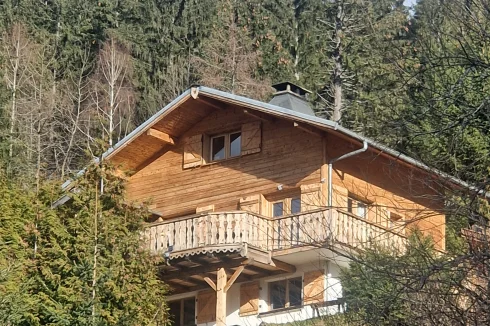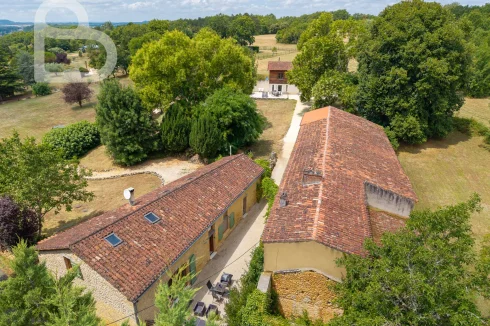Paying 'Under the Table' for French Property
Thursday 15 April 2010
Paying money under the table for a property in France is not uncommon, but it does not make it less risky.
It is of course a practice that is illegal, but for some buyers and sellers the potential rewards seem to outweigh the risks that are involved.
Notaires are well aware that it takes place, sometimes to the extent that they will ease the process, by leaving the room while the swag is handed over!
Anecdotal evidence from notaires and estate agents suggests that on most occasions the sums involved may only be fairly modest, in the range €5,000 to €50,000.
Such figures may seem large in relation to a monthly pay packet, but not necessarily significant in the sale and purchase of a property costing several hundred thousand Euros.
It also seems from these same sources that the practice occurs more frequently for top end properties, probably because those with money find it easier to put their hands on cash, the transaction can be more easily disguised, and each side has more to gain by it.
However, in some cases things can get very silly, such as occurred last year with an assistant mayor of Avignon, Albert Mansour, who handed over €400,000 in cash towards the purchase of a restaurant in the city!
Needless to say, the honourable member had some explaining to do to the police who caught up with him.
His defence was one that is frequently given in such cases; he simply argued that he was given no choice in the matter by the seller, who insisted on a large cash payment.
Although such reasoning will not wash with the prosecuting authorities, it is very often the seller who insists on the dessous de table in order to avoid or reduce the payment of inheritance or capital gains tax.
There are no inheritance taxes between man and wife, but this is not the case with other family members, despite the generous allowances that apply to children.
The tax situation is more onerous for the French resident seller of a second home, who faces the prospect of paying capital gains tax at the rate of 28.1% if they have owned the property for less than 15 years (although on a decreasing scale from 6 years of ownership).
There are also short term advantages for the buyer, whose transaction costs are reduced, and who may also be able to obtain a discount on the price being sought by the seller.
Thus, as notaire fees and stamp duty are payable as a percentage of the purchase price, any reduction in the price means less in fees and taxes, and there is little the French enjoy more than cheating the taxman!
The same applies to estate agent fees, whose commission is also based on the purchase price of the property.
In other cases, the payments are made not for fiscal reasons, but simply to unlock the sale of a property owned by several inheritors, where possibly one of the owners seeks a fringe benefit in order to agree to the deal.
So it is easy to see why some are prepared to deal in cash for at least part of the sale price of a property.
Implications for the Buyer
However, for the buyer there are fiscal and practical implications over and above the fraudulent nature of the act.
If they later decide to sell the property they will be faced with the prospect of a larger bill for capital gains tax (should they be liable), as the tax will be calculated on the basis of the purchase price as stated in the sale contract. So a lower purchase price would ordinarily mean a higher level of capital gains tax on resale.
There is also the issue of just how large sums of money would be withdrawn from your bank account without attracting the interest of the banking and tax authorities.
As now occurs in most countries, the French authorities have a system for monitoring abnormal banking withdrawals and transactions (TRACFIN - Traitement du Renseignement et Action contre les Circuits FINanciers clandestins).
Throughout Europe, banks, estate agents, solicitors and notaires are now required to cooperate closely with the regulatory authorities to combat money laundering and the level of monitoring of customers by their bank, and of banks by the statutory authorities, has increased significantly in the last few years.
Banks in Europe are now legally obliged to question a customer about the object and the nature of 'suspicious' transactions, although just how many do it remains unclear!
There is also the delicate question of just when to hand over the money. Readers John and Marilyn Fulton (surname changed) handed over €10,000 in cash at the insistence of one of the sellers a few hours before the contracts were due to be signed for a property in Brittany, who then simply failed to turn up at the notaires office.
‘The notaire rang him and he was full of apologies, assuring the notaire that all was ok and he would sign in the next few days. Of course, he never did so. We were complete idiots, and we realise that now, but it just seemed so normal and relaxed that we thought nothing of it at the time’, says John. 'Needless to say, we have thought about it quite a bit since!’
Thank you for showing an interest in our News section.
Our News section is no longer being published although our catalogue of articles remains in place.
If you found our News useful, please have a look at France Insider, our subscription based News service with in-depth analysis, or our authoritative Guides to France.
If you require advice and assistance with the purchase of French property and moving to France, then take a look at the France Insider Property Clinic.





